How did you come up with the title? Tongues of Angels is from a beautiful, beloved quote from the Bible that says, “If I speak with the tongues of men and of angels, but do not have love, I have become a noisy gong or a clanging cymbal.” It says that no matter how beautifully I speak, if I don’t have love in my life or in my heart, I am just making noise. This quote sums up the theme of the novel, in essence: These priests are just going through the motions and cannot be truly spiritual (e.g. they are just making noise) if they don’t have love in their hearts or in their lives. “Love” could also mean being content or spiritually satisfied – but in many cases, even companionship is denied. So the church is being led by people without love in their hearts. It is only noise.
Can you tell us about your main character? Rob Souza is a young American Catholic priest who has been in the job for six years and suddenly finds himself questioning his calling. He wants to be a priest, but more and more, he feels like something is missing. It’s his crisis, not of faith, but in the institution of celibacy for priests. He’s lonely, and wishes he could have companionship, a wife, kids. And since this is utterly against everything he’s ever known, it’s a terrible ache and a dangerous place for him to linger. Church politics and gossip are his worst enemies – or is he his own worst enemy?
Why did you choose to write this particular book? My ex-husband was a Catholic priest before we married; he chose to leave the church, and over 15 years, we frequently had his friends over for dinner, BBQ and parties. They talked about their daily lives as priests: their worries, woes, triumphs, intense schedules, and so much gossip. I wanted to capture the flavor of that, and I did so in several scenes. I also wanted to tell the story of how a heterosexual priest has to choose marriage or the church. For the gay priests, this issue just didn’t seem as difficult, in my experience.
How did you develop your plot and characters? I truly began with simple dialogue. Suddenly all these priests were speaking in my head and I had to let them talk. The things they said were the catty, vicious, naughty, hilarious, innuendo-laden gossip that I heard at my own dining room table. So sassy! Each priest in Tongues of Angels is based on several real priests I know (so are the nuns). They are more archetypal in the novel, but if you know a lot of priests, you probably know one of these guys.
What was the hardest part about writing this book? I didn’t want it to be The Thorn Birds, which is just deliciously gratuitous priest-sex. I wanted to show spiritual longing, and how close to sexual longing it can be. Desire for oneness with G*d, for example, can be as deeply affecting as falling in love with someone. We’re discouraged from thinking of sex and spirituality together – it’s “sinful”! But Carl Jung said he’d never seen a sexual problem that was not also a religious problem, and vice versa. Those spiritual/sexual/ecstatic impulses come from the same part of the brain. So it’s no wonder they collide. And, oh, what calamity ensues!
What genre are you most comfortable writing? I do best in literary fiction vs. genre fiction. I am originally a poet, and I can’t help but think poetically. However, I’m also a journalist by trade, so I’m able to write nonfiction comprehensibly and easily; that’s where I’ve won all my awards. Creative nonfic is probably the best place for me, but I have these stories to tell. So I wander and dabble.
What inspired you to write your first book? My first novel (under the bed somewhere) is a thriller inspired by a newspaper photograph of a runaway girl. I wanted to tell her story. I spent 4 years telling it. I couldn’t get her sad face out of my mind. But also – someone at my 5-year high school reunion said, “Oh, I’ll bet before we see her again, she’ll write a book.” I felt challenged by that – and before the 10th reunion, I had.
Have you ever had writer’s block? If so, what do you do about it? I went to a writer’s conference as a young poet, feeling nervous and insecure, and an established poet was condescending and insulting to me. Instead of realizing he was a sexist jerk, I took his words to heart and believed that I was wasting my time. I didn’t write for about three years after that. He broke my heart. But I believed him instead of believing in myself. That’s really the key. You have to put on your writing self as you put on a cloak – it is all yours, and no one can take it off of you without your permission. I slowly learned to wear my cloak again. And it’s all mine. I will wear this til death!
What is your favorite quote, by whom, and why? Ernest Hemingway says in A Moveable Feast to write one true thing every day. He doesn’t mean in your journal. He means to write one beautifully, emotionally true thing. If that is describing the color of the sunrise under a birds wings, or what your morning coffee tastes like, that’s as true as writing anything else. Your Facebook status can be your one true thing – if it’s honest and heartfelt.
Did you learn anything from writing this book and what was it? I really learned about structuring a novel, about creating resonance, about revision. I was in my graduate fiction workshops at the time and they were a tough crowd, believe me. Sharpened knives. I also took it to writing conferences, and there were sharp knives there, too. I learned to have a tougher skin from those sessions, but also how to kill my darlings. I killed off three beloved characters for the final draft. That’s about half the volume. That was hard – but necessary. You see only palimpsests of these characters in the final story.
Why did you choose to write this particular book? I originally began it as a way to tell my then-husband’s priest story – it was called “A Priest’s Tale.” But reality was very different from where the story wanted to go. I went with the story instead of the documentary-style tell-all. One of my poetry professors told me, “Don’t let the truth get in the way of a good poem,” and the same is true of a story. I had to leave “the real story” behind very early on in order to make beloved characters and believable plot and action. So it’s based, somewhat, in truth, but it is by no means a true story.
How much of the book is realistic? The gossiping priests; the post-traumatic stress of Jessica, the scarlet woman; the stress that the priests live with during various church seasons like Christmas or Easter; misogyny in much of the priesthood; scenes from the seminary; the clash of reforming liturgy vs. classical liturgy; and the Catholic and Christian theology – I read so much theology and canon law when writing this. You can bet it’s solid.
Have you included a lot of your life experiences, even friends, in the plot? I could name names. It’s best that I don’t. These people gave me their stories but prefer to remain anonymous.
Do you have any advice for writers? I’m not one of those who says, “Write for 30 minutes every day,” or other such advice. I prefer Hemingway’s “one true thing” – just try to write that, every day, and you’ll make progress. I find that when I get stuck, I do well to write three Morning Pages (from Julia Cameron’s The Artist’s Way) and that usually gets me back on track. I don’t get blocked. Sometimes I just don’t feel like writing. And that’s cool. Walking, gardening, knitting, kneading bread, taking a bath or shower – these are other ways to percolate the juice. If you get stuck, go do one of those. Another trick I use is to type my handwritten notes (after an interview or research). That kick-starts the engine as well.
How long have you been writing? I have been writing since I could write with a pencil – about third grade, when I started writing poems, and fourth grade, when I started writing books in pads of paper; in ninth grade I really started writing poetry, and took high school newspaper, which catapulted me into college newspaper and freelance writing. I was paid for my first magazine article when I was 19. I have been writing professionally for 30 years.
When did you first know you could be a writer? I knew I could be a journalist from high school – but I differentiated “work” writing from “real” writing for many years. Journalism (newspaper, magazines, editing, blogging) paid the bills but felt like cheating because I was then too tired to write a poem. I felt like I was only really writing when I could get a draft of a poem down. In my 40s, I made peace with both sides of the heart and became better at both kinds of writing. My journalism became easier and more poetic; my poetry eased into everyday life. Writing is writing. It doesn’t have to live in hierarchy.
Can you share a little of your current work with us? My great-aunt Doris passed away two years ago and left me her diaries from the 1920s. I fell in love with her writing style and have been publishing her diaries on Facebook and Twitter, a few lines at a time. (Visit Facebook/TheDorisDiaries or Twitter @TheDorisDiaries). Last fall the first volume was published by IV Ink;
I’ve Got Some Lovin’ to Do: The Diaries of a Roaring Twenties Teen (1925-1926), which contains these boy-crazy, hair-raising flapper stories from an eyewitness to the times. The second volume is due out this fall, and it’s called
Reaching for the Moon: More Diaries of a Roaring Twenties Teen (1927-1929). You can read more about this project at
www.thedorisdiaries.com. (Both of those are edited and annotated by me.)
Do you have to travel much concerning your book(s)? I have not traveled with Tongues of Angels, but I travel a lot for The Doris Diaries. In March, I went to several high schools, girls’ clubs, women’s clubs and libraries to speak about Doris for Women’s History Month. Last fall I traveled 4,000 miles by train to speak in libraries, bookstores and in speakeasies from Portland, Oregon, to Albuquerque. I was in Portland again in March, and will be on the road again with Volume Two of the Doris Diaries in September. I hope to hit the East Coast this year.
Who is your publisher? My publisher is Indie-Visible Ink, an excellent consortium of women who work together to produce and promote works of literary fiction, fantasy, YA, mystery, essays, and creative nonfiction (
www.indie-visible.com). These women are strong, smart and sassy. I couldn’t do it without them. Look for them on GoodReads, Smashwords, and Amazon.
What contributes to making a writer successful? The work is never done. I will never stop writing til I drop dead because there is always more to write. If you want to be a professional writer – leave your job and do this fulltime – you have to be prepared to work nonstop, at blogging, freelance, promoting, marketing, reviewing, teaching, sharing, volunteering, and so on. Freelance work is a sales job – you have to keep it flowing so that the next check comes in six months. Writing books is the same thing. They don’t write themselves, and they don’t promote themselves, either. Someone has to write those tweets, and someone has to check all the various media sites, and Google alerts, and email, and so on. That someone is you. Either you’ll be a success or you won’t -- because either you’ll do the work or you won’t.
Genre – Romantic Suspense (PG13)







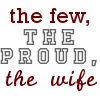

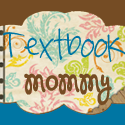



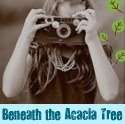


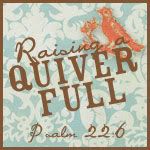
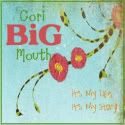

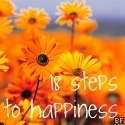


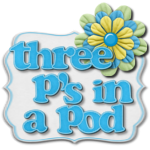






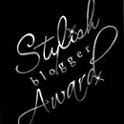









0 comments:
Post a Comment